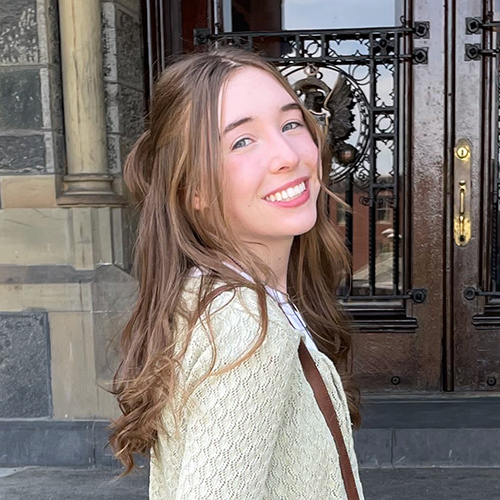Who may apply?
All first-year students in the Georgetown University College of Arts & Sciences.
Course/Credit Equivalencies
One course and three credits.
Requirements Fulfilled
The Ignatius Seminars touch on almost every core requirement and multiple major/minors. Please see each Seminar for more details.

“My Ignatius Seminar was absolutely foundational to my transition into Georgetown’s learning community. The environment fostered through this unique experience sprouted friendships, insightful discussion, and a quaint community of like-minded–yet different–first-years.” – Anna Dewey, C‘26
About the Program
Ignatius Seminars offer students an enormous range of questions and subjects to explore, each course designed by a faculty member invited to teach something personal, something intimately meaningful to them. The variety represents the richness and diversity of the College’s intellectual community. But in this variety these seminars share a common thread and inspiration, beyond the texts and contexts, that make these Ignatius Seminars.
St. Ignatius of Loyola, who founded the Jesuit order in the 16th century, offered a number of educational insights that animate Georgetown’s curriculum still in 2023. Close faculty-student interaction, reflection, whole person education, and cura personalis characterize the open and electric atmosphere in our Ignatius Seminars, which in turn provide an important orientation to our deepest educational values and priorities.
- Cura personalis translates roughly to care for each person’s individuality and integral wholeness. The small course environment and emphasis on mentoring and interchange foregrounds cura personalis in the classroom at the beginning of each student’s College journey.
- Freedom. Our faculty are experts in their disciplines, contributing to the future of knowledge in their fields. Ignatius Seminars offer them an additional invitation, to blend that expertise and rigor with their joys, hobbies, or “extra-curricular” interests. The result for the student is a unique lens into the life of the mind, into the journey of an intellectual.
- “Depth of thought and imagination.” Ignatius Seminars train students in skills and habits that not only ensure success in classes, but happiness, depth, flourishing, and wisdom beyond. Reading, writing, discussion, and argumentation are works in progress for us all; Ignatius Seminars build a safe home for students to experiment, expand, deepen, and enrich these dimensions of their academic lives.